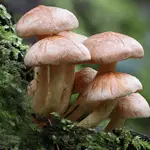Introduction
Gardening is a rewarding venture, but to ensure your plants thrive, choosing the right fertilizer is paramount. This article explores the best fertilizers for your garden, providing tips and ideas to nurture a vibrant and flourishing oasis in your backyard.
Understanding Your Soil: The Foundation of Success
Soil Composition
Before diving into fertilizers, let’s understand your soil. Different plants thrive in different soil types, so knowing your soil composition is crucial.
Soil Testing
Invest in a soil testing kit to determine the pH and nutrient levels in your soil. This step is foundational for selecting the right fertilizer tailored to your garden’s needs.
Organic vs. Synthetic Fertilizers: The Battle of the Titans

Organic Fertilizers
Organic fertilizers promote long-term soil health, offering a natural and sustainable option. Learn about popular organic choices like compost, manure, and fish emulsion.
Synthetic Fertilizers
Synthetic fertilizers provide a quick nutrient fix. Explore the pros and cons of these chemical options, including their potential impact on the environment.
NPK Ratio: Decoding the Fertilizer Label
Understanding NPK
NPK stands for Nitrogen, Phosphorus, and Potassium – the three essential nutrients for plant growth. Deciphering the NPK ratio on fertilizer labels is key to choosing the right blend.
Matching NPK to Plant Needs
Different plants have varying nutrient requirements. Unravel the mystery of matching NPK ratios to specific plants, ensuring optimal growth and productivity.
Slow-Release Fertilizers: The Tortoise Approach
Advantages of Slow-Release
Slow-release fertilizers provide a gradual nutrient release, fostering steady plant growth. Discover the benefits of this approach and why it might be suitable for your garden.
Types of Slow-Release Fertilizers
Explore diverse slow-release options, such as granules, spikes, and coated pellets. Learn how to incorporate them effectively into your gardening routine.
Seasonal Fertilizing: Catering to Plant Needs
Spring Awakening
Spring is a critical time for fertilizing. Delve into the nutrients your plants crave during this season and the best fertilizers to kickstart the growing season.
Summer Sustenance
As the temperature rises, your plants have different needs. Uncover the fertilizers that keep them thriving in the summer heat.
Fall Prep
Prepare your garden for the dormant winter months by understanding the specific nutrient requirements in the fall. Learn which fertilizers promote root growth and winter resilience.
Winter Rest
While winter is a time of dormancy, there are still ways to support your soil for the upcoming spring. Explore the subtleties of winter fertilization.
Fertilizing Techniques: Mastering the Art
Top-Dressing Techniques
Discover the art of top-dressing – a method where fertilizers are applied directly to the soil surface. Understand when and how to employ this technique for optimal results.
Foliar Feeding
Explore the technique of foliar feeding, where plants absorb nutrients through their leaves. Uncover the benefits and appropriate situations for this efficient fertilizing method.
DIY Fertilizers: From Your Kitchen to Your Garden
Kitchen Staples as Fertilizers
Your kitchen is a treasure trove of potential fertilizers. Learn how to turn everyday items like coffee grounds, eggshells, and banana peels into nutrient-rich additives.
Composting 101
Embark on the journey of composting. Understand the basics of composting, creating your own nutrient-dense soil amendment from kitchen and yard waste.
Troubleshooting Fertilizer Woes: Saving Your Garden
Over-Fertilization Woes
Too much of a good thing can be detrimental. Identify the signs of over-fertilization and learn how to rectify the situation to save your plants.
Nutrient Deficiency Red Flags
Recognize the symptoms of nutrient deficiencies in your plants. Tailor your fertilizer application to address specific nutrient needs and revitalize your garden.
Conclusion
In the world of gardening, choosing the right fertilizer is akin to providing a balanced diet for your plants. Whether you opt for organic, synthetic, or a blend of both, understanding your soil and plant needs is key. Experiment with different fertilizing techniques, and soon your garden will be a vibrant testament to your green thumb.
Unique FAQs About Garden Fertilizers
Q: Can I use the same fertilizer for all my plants?
A: While some general-purpose fertilizers exist, it’s ideal to match fertilizers to specific plant needs for optimal growth
Q: How often should I fertilize my garden?
A: The frequency depends on factors like plant type, soil composition, and the fertilizer used. Generally, a schedule of 4-6 weeks is common.
Q: Are there any environmentally friendly fertilizers?
A: Yes, organic fertilizers and slow-release options are often considered more environmentally friendly than their synthetic counterparts.
Q: Can I make Q: Can I make my fertilizer at home?
A: Absolutely! DIY fertilizers using kitchen scraps or composting are eco-friendly options that benefit both your plants and the environment.
Q: What’s the biggest mistake in fertilizing to avoid?
A: Over-fertilization is a common pitfall. Always follow recommended application rates to prevent harming your plants.
Latest Posts
- What Types of Lettuces Can You Grow?

- How to Plant Onion Seeds for Maximum Germination

- How to Plant Parsnip Seeds for Maximum Germination

- How to Plant Mushroom Seeds for Maximum Germination

- How to Plant Lettuce Seeds for Maximum Germination

- How to Plant Kale Seeds: A Step-by-Step Guide to Maximum Germination Success!






4 responses to “Best Fertilizers for Your Garden 2024: Tips and Ideas”
I have been browsing online more than three hours today yet I never found any interesting article like yours It is pretty worth enough for me In my view if all website owners and bloggers made good content as you did the internet will be a lot more useful than ever before
Thank you
I’ve been browsing the internet for more than three hours, and I haven’t seen any posts as fascinating as yours. I think it’s well worth the investment. If more bloggers and website owners created content as good as you do, the internet would be significantly more useful than it already is.
Thank you